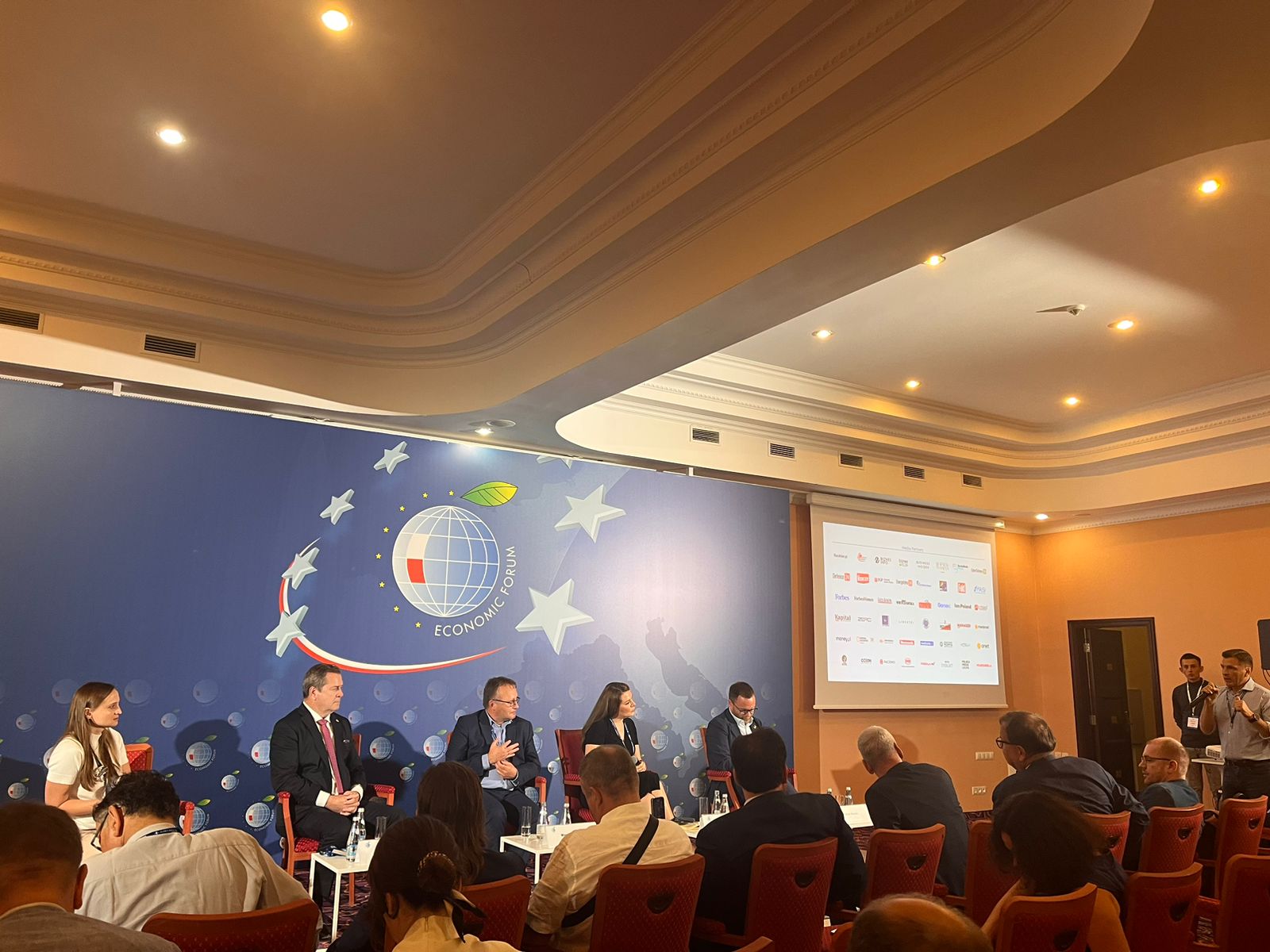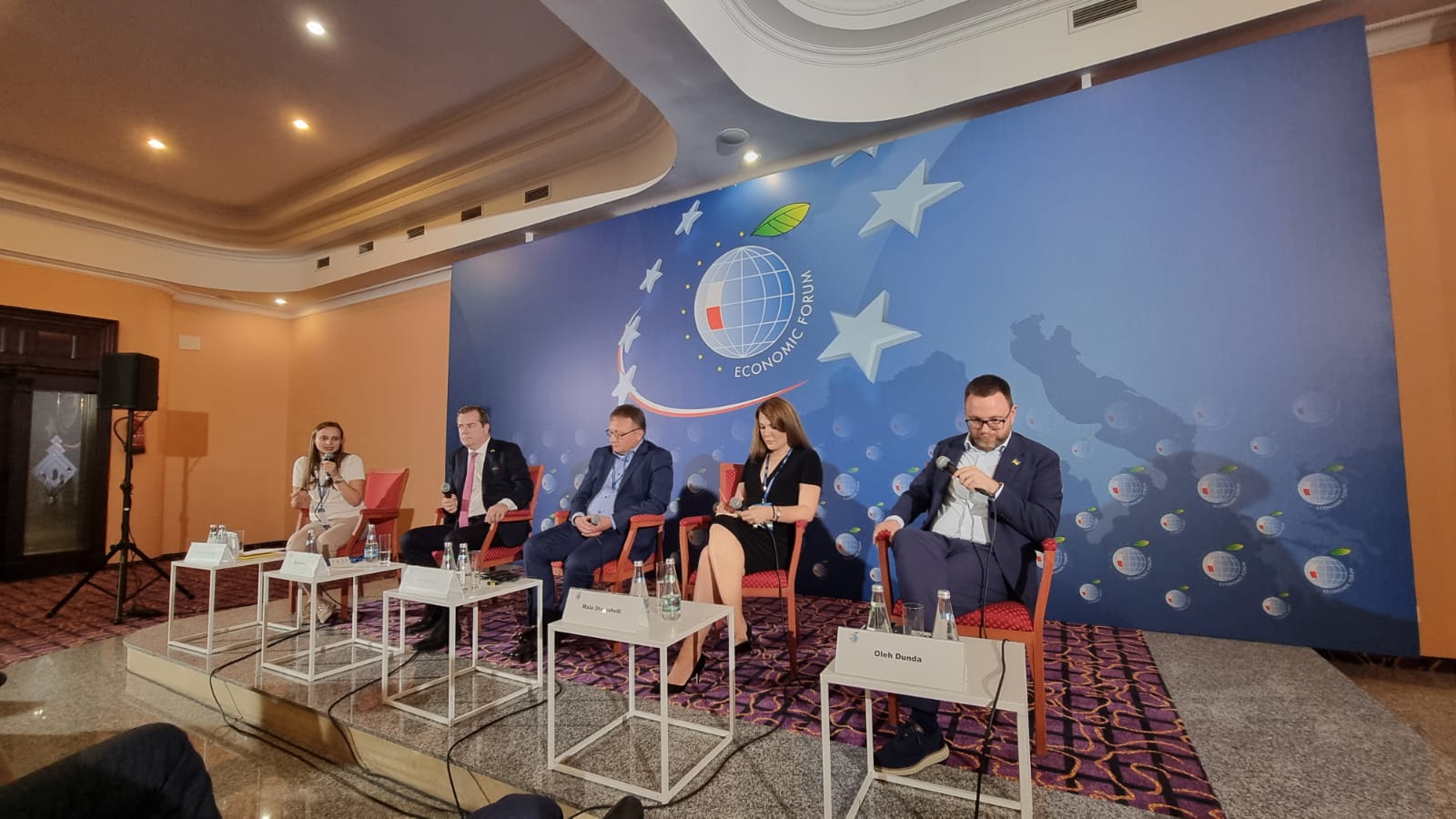During the Economic Forum in Karpacz (Poland), the CENSS Center for Security Studies, in collaboration with the forum team, organized a discussion titled “What Are the Scenarios for the War in Ukraine?” The speakers included experts from Ukraine, Poland, and the United States. The discussion was moderated by Viktoria Voronina, Executive Director of CENSS. One of the issues discussed by the participants was geopolitical challenges, particularly the concepts of a multipolar versus bipolar world, the formation of alliances, and their impact on European security.
In this context, Viktoria Voronina reminded the audience of a recent statement by the Kremlin’s leader: “The circle of states advocating for a just world order is expanding, and they are ready to resolutely defend their legitimate rights and uphold traditional values. New centers of power and economic development are emerging and strengthening.” The speakers were then asked for their opinions on which states they consider to be poles of power in a multipolar world—or whether the world remains bipolar.
Maya Otaraashvili, Director of the Eurasia Program at the Foreign Policy Research Institute (FPRI), responded as follows:
“I’m not sure that I have a clear answer to this question. For now, I don’t see a bipolar world. I think it will, to some extent, depend on how the Russia-Ukraine war ends. I certainly see that economic interests largely align, especially among non-Western players. This brings me back to my main argument: the U.S. lacks a coherent strategy toward Russia. After Obama’s failed reset approach to Russia, have you ever heard of a long-term U.S. strategy for this country? Thus, NATO, in my opinion, is one of the most effective mechanisms the U.S. has used in its approach to Russia. But there is a narrative I constantly hear—that the empire [Russia] will collapse. I’m uncomfortable discussing this, but I see no talk of this in Washington, which has no interest in Russia’s disintegration. Instead, we have a strategy where we don’t want Russia to collapse. Therefore, it’s very hypocritical for the U.S. to talk about supporting Ukraine or wanting Ukraine to win when we don’t aim for Russia to lose,” she stated.
In Otaraashvili’s view, while the U.S. refuses to acknowledge that Russia must lose this war, other global players share similar sentiments. These include China, India, and Turkey, each with its own economic interests. They are ready to form alliances, but such alliances would definitely not benefit Ukraine.
“There is a serious decline in American leadership where it is truly needed. So yes, I believe we are witnessing a massive reshuffling of the global order post-World War II,” she concluded.
Marek Budzisz, Senior Fellow at the Strategy&Future think tank and an expert on Russia and the post-Soviet East (Poland), shared his perspective on Ukraine’s potential NATO membership and cooperation with other countries outside the security bloc:
“I believe the strategy of deterrence has failed. The Americans threatened sanctions, but their so-called ‘hellish’ sanctions did not deter Putin from aggression against Ukraine. Moreover, the sanctions imposed have not broken Russia’s capacity or political resolve to continue the war. From the standpoint of future security policy, I think it’s essential to form alliances with countries that share a similar assessment of the situation. In this sense, I believe the Ukrainian elite is making a strategic mistake by relying on a multifaceted, NATO-centric system. This doesn’t mean abandoning the path to integrating into the European security system. However, Ukraine should take the lead in forging close cooperation—especially militarily—with neighboring countries that view the situation similarly,” the expert asserted.



